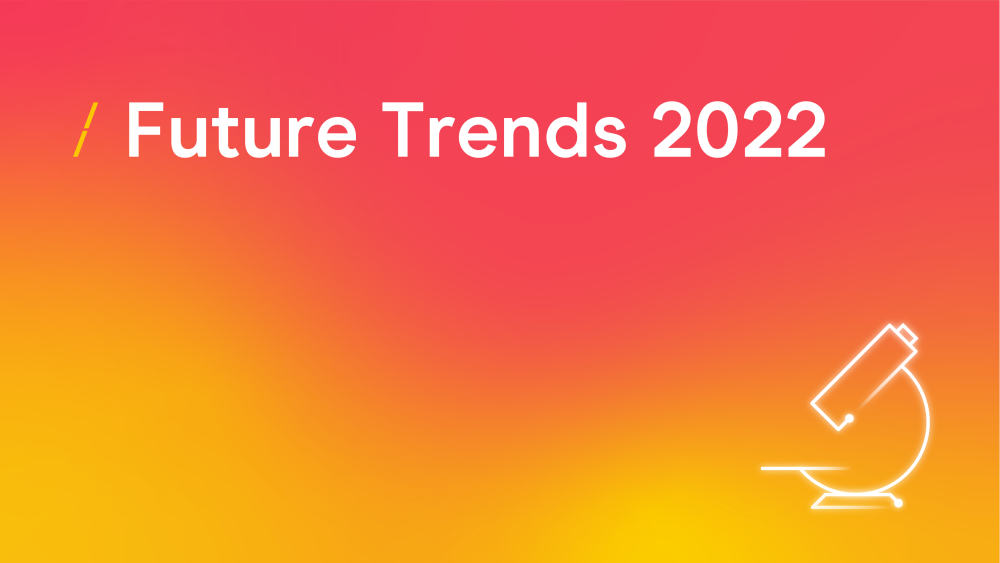Future Trends 2022
30 Mar 2022

Welcome to our Future Trends 2022 series, part of our Customer Engagement campaign, in collaboration with dotdigital, Merkle and Salesforce. and in partnership with Foresight Factory.
As with previous editions, the objective of this collection is to inspire organisations to find innovative and diverse ways to respond to new customer behaviours and desires.
Each trend in the series follows the same structure and aims to inform, inspire and give practical advice. The first two – ‘The Trend’ and ‘The insights’ – define the trend itself, report the latest data and analysis on how it might impact customers and the opportunities should seize.
Having set the scene for each trend, the ‘Takeaways’ section then offers key aspects we suggest you consider – we provide you with practical tips and suggestions to apply to your own business.
The ‘Questions’ section then helps you think about how these might relate to your own brand (or clients) and, most importantly, its customers.
Finally, the ‘Case Studies’ will close your journey with successful and tangible real-world examples of how these trends are manifesting.
This year’s trends include:
Future Trends: Influence in the Age of Social Media
Social media has fast become a ubiquitous part of consumers' lives, with all age groups increasingly engaging with one or more of these platforms every day. However, truth and trust are all-too-often in short supply through these channels, giving rise to new challenges to successfully influencing consumers. Brands, by ensuring openness and transparency, must address these issues to fully capitalise on the opportunities and benefits on offer. This trend offers insight into today's challenges and what winning influence strategies will look like tomorrow.
Future Trends: Value of Sustainability
Consumers concern about environmental and social sustainability have only increased amid the pandemic, making it an increasingly important differentiator for brands. While other factors remain important, brands should invest in the opportunities’ sustainability can offer to gain and retain customers. These values are already driving changes in consumer behaviour and are challenging the traditional linear model of consumption. This trend will share key insights into how consumer behaviour is shifting, and the value brands can find in a more sustainable future.
Future Trends: Evolution of the Direct-to-Consumer
The number of companies selling direct-to-consumer, bypassing traditional retailers or other intermediaries, has grown significantly amid the pandemic - particularly online. Often this has been through dedicated standalone platforms and offerings that brands create, with success bringing closer more engaged customers than ever before. Some brands are now looking to the next opportunity that the direct-to-consumer trend might offer, by forming new partnerships with other like-minded businesses. These brand integrations offer new opportunities to engage new audiences, more personalised customer experiences and real value to both brand and consumer. This trend will focus on the relationship between brands and consumers, specifically on the brand-to-consumer (DTC) formula.




Please login to comment.
Comments